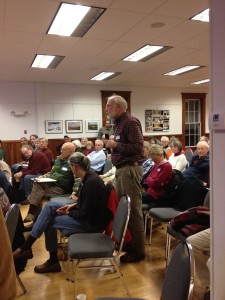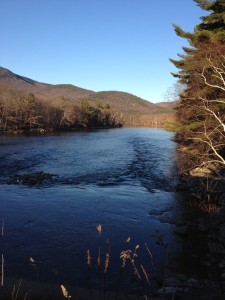We have much more to do and your continued support is needed now more than ever.
Tar Sands in New England?

There were about 65 people in the room (impressive given that many of these towns have a population under 500), and presentations were given by the spill response head from the NH Department of Environmental Services, Shelley Kath from Natural Resources Defense Council , Larry Wilson (the head of the Portland to Montreal Pipeline Company), and John Quinn from the American Petroleum Institute. The presentations connected this pipeline to the international picture, and there was a lot of concern in the room about the idea of the project.
The pipeline company executive brought 2 employees as well as a state lobbyist with him, and although he denied having plans to run tar sands in the existing pipe he said he would be thrilled to if he was given the opportunity, as the pipeline is currently empty.

Several people asked about climate and some were very pointed, asking the API person if he believed in climate change and if he felt it was human-caused. He made it clear that the American Petroleum Institute does not see climate change as their problem. Folks pointed out the local impacts a tar sands spill would have as well as the regional, national, and global effects of climate change. They reminded the oil executives that the Kalamazoo River in Michigan is still being cleaned up, more than 2 years later!
We had a great group there from our Tar Sands Free NH coalition, with several members of the Trout Unlimited Chapter (two of whom asked really good questions), some NH Audubon folks, some Appalachian Mountain Club folks, and Eric Orff, who is a retired state wildlife biologist who used to tag bears in that area back when he worked for the state.
All in all a good meeting and a clear indication from the communities of Coos County NH that they have lots of concerns about any project to run tar sands through their back yards.




















